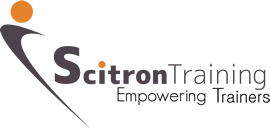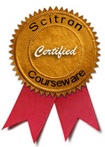Times are tough aren’t they? We are hearing the word recession mentioned every time we check the news. All the talk of doom and gloom can really damage our confidence and self-belief especially if you are in sales.
Having lived through the previous recession I can reassure you that some salespeople did well and others didn’t. Which group would you rather belong to?
To sell successfully in a recession you need a strategy; a plan of action to help you succeed.
During the depression in America in the thirties, two companies that did well were Kellogg and Procter and Gamble. They did it by increasing their spend on advertising while other companies were busy slashing their advertising budgets.
As salespeople, we need to redouble our efforts when times are hard. See more customers, give better service and try to stay confident,nThis means working harder and smarter so that you get your share of the business that is still out there. Remember, 95% of salespeople don’t have a plan and the key to successful and professional selling is confidence and planning.
1- Begin by defining your job purpose. Write down the purpose of your job in 2 sentences. This is really important. It helps you decide, as you go through your working day whether the next thing you are about to do is moving you nearer to achieving your job purpose or not. Time management is about making choices. The most successful salespeople focus on activities that are important and move them towards achieving their objectives.
2- Set yourself objectives. These should be short, medium and long term. Write them down
3- Write yourself a sales plan.
4- Understand the importance of opportunity cost. Basically, this means you can only do one thing at once. To be a top time manager you need to be good at setting priorities. What are the really important parts of your job that you need to focus on? For some salespeople prospecting is vital. Finding new contacts and customers. For others, customer care is the major issue. Focus your time on the important stuff.
5- Do it now. This is based on a great book called Do it Now: Break the Procrastination Habit by William J. Knaus. It encourages us to get things done straight away, rather than spending our lives shuffling piles of paper and writing lists. If it can be done quickly, just do it. This particularly applies to the jobs people avoid like planning and prospecting.
Note: The following tip is extremely important for any sales person
6- Understand the Pareto principle. 80% of our effective work tends to be done in 20% of our time. We waste a lot of time being busy. Here is another statistic. Most salespeople spend only 5% of their time in productive selling situations. In a study carried out across Europe, it was also found that 41% of the average salesperson’s time is spent in the car. Our aim must be to increase the time we spend productively selling our products.
7- Prioritise tasks. In time management terms we rank different tasks in terms of their urgency and their importance. If you would like a copy of our time management training notes which explains this in more detail I will e-mail it to you.
8- Learn to say no. If you are the sort of person who can’t say no, I can guarantee you are spending too much time doing things that are not helping you move towards achieving your objectives. Salespeople are measured by results. This is one of the hardest lessons the average salesperson has to learn and yet is one of the most effective ways of becoming more productive.
9- Start work earlier. Work harder. Modern buyers don’t work 9.00 to 5.00. A sizeable proportion of buyers are willing to meet with salespeople and accept telephone calls between 8.00 and 6.00. Most salespeople try to contact buyers between 10.30 and 12.00 and 2.00 and 4.00. Be different. Try to fit in an extra appointment each day and you will be amazed at the results.
10- Do more prospecting. Set yourself a prospecting target for each week and stick to it. In the long term it will give you a regular supply of new business.
11- Build time into your schedule to develop your sales skills. Remember the old saying: The harder I practice the luckier I get. Most people attribute this quote to the golfer Gary Player. It was actually Thomas Jefferson (1743-1826) who is quoted "I'm a great believer in luck, and I find the harder I work the more I have of it." Work on developing your sales skills and make the most of training opportunities.
12- Combine tasks. Grouping tasks together makes for greater efficiency. This applies particularly to prospecting, planning and telephoning activities.
13- Use technology. E-mail marketing is amazing. I have some tips I can let you have if you are interested. In addition to this the technology available on the average computer and mobile phone can help you get better organised.
14- Use the internet for sales planning & forecasting. All the information you will ever need is out there.
15- Put together systems for managing your administration. Yes, I know this is the boring bit, but a well planned admin system can save you a lot of time.
16- Ask yourself: Is this appointment worth it? I know salespeople who will take out a full day of their time to go and see one customer, due to travel time and distance. If it was your business, or if you were spending your own money would you consider this a good use of a day? People are happy to communicate by phone and e-mail. Remember opportunity cost. Go back to tip 4. What else could you have achieved with that day you spent in the car?
17- Keep regular contact with existing customers. Many salespeople don’t and miss out on future sales. Most customers who leave us do so because they feel neglected. Again use a wide range of methods to keep in touch. Keep them informed about new products and special offers.
18- Challenge unrealistic deadlines and unnecessary projects. The best time managers are assertive and understand the importance of managing their manager. Without being negative or obstructive, focus on your job purpose and point out the impact of changing your planned schedule.
19- Build thinking time into your plan. While we all agree planning is important, so is reviewing progress and amending your strategy. Take time out for this activity. Plan it into your diary and involve your manager.
20- The final tip. Make sure you spend time with your friends and family. Look after your health and relationships. Work is important, but is only one part of your life. This will actually help you work more effectively.




















